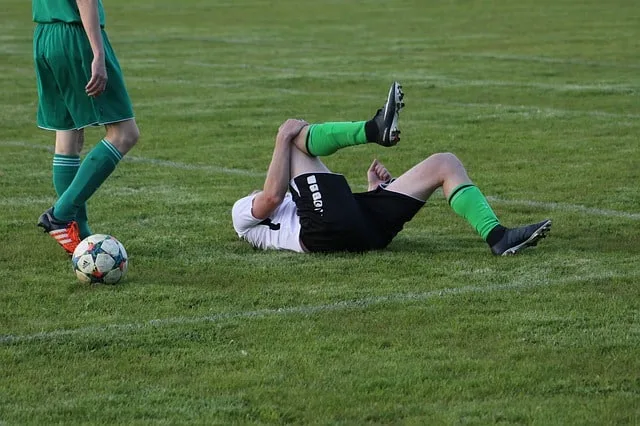
You’re walking through the aisle, hoping to pick up some of that spicy sriracha sauce for your french fries or chicken wings you’re going to make tonight and suddenly, you slip and fall. You land on your hip and you feel a pain that you never thought was possible. Your calm afternoon trip to the supermarket has been interrupted by something that you weren’t prepared for and you know, will affect the rest of your life somehow.
What do you do? Well, you will need to assess the damage, recover, and then do something about the financial trouble that is about to come your way!
How to communicate pain
Now, most first responders will ask you certain questions about the type of pain you are feeling. They will be as follows…
- Where is the pain? Don’t move while you show them, and don’t think that a secondary pain, such as a trapped nerve is where the pain is located. So try to accurately describe the exact location, using bone and muscle terminology.
- Does it hurt when you move? Don’t move if you don’t want to! So many people cause themselves more harm because they end up moving while they should be staying still.
- How is your breathing? The shock of the pain is going to be devastating but remember to breathe as normally as you can. Before they show up, you can try to take your own pulse to help them treat you quicker.
The recovery phase
A broken hip is a very painful injury. The hip joint is perhaps the largest ball and socket joint in the body, besides from your shoulder. So, the recovery phase is going to be painful, there’s no other way around it. Just remember that you will need to heal in phases.
- Phase 1: If you have gone into surgery, you’ll need your bones to set. Your muscles will be in spasm and they will be shooting electrical signals of distress, so you will have trouble sleeping and focusing on things during the day.
- Phase 2: Now you will need to learn how to walk. The physio will be intense and you will probably be helped by nurses to stand and walk. Just remember that you can take your time and only put as much of your own body weight onto your frame, as you can manage.
- Phase 3: Getting back to normal life. You will need to keep walking regularly to gain your strength back and take the time to do some range of motion exercises.
Financial loss
Hip injuries almost always mean you will be out of work.
The simple act of sitting down is painful and unbearably so. So, you will have to accept that you will make a financial loss and your job will be put on hold. Speak with a personal injury lawyer who can deal with slip and fall cases, so they can regain some of the money you have lost.
They will build a case that shows it wasn’t your fault and takes into account the pain and suffering you have been through.
Hip injuries are no joke. They’re so painful and distressing which is why you should always take your time to heal and find ways of generating some of that lost revenue.
- Sagittarius Man & Gemini Woman Love and Sex Compatibility - January 31, 2024
- Taurus Ascendant Rising Personality Traits in Men (Guide) - January 31, 2024
- How to Seduce and Attract a Sagittarius Man (Seduction Tips) - January 31, 2024
